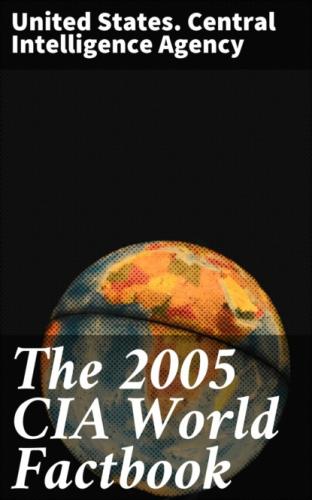Modernity or FODEM [Charles MASSI]; Liberal Democratic Party or PLD
[Nestor KOMBO-NAGUEMON]; Movement for Democracy and Development or
MDD [David DACKO]; Movement for the Liberation of the Central
African People or MLPC [the party of deposed president, Ange-Felix
PATASSE]; Patriotic Front for Progress or FPP [Abel GOUMBA];
People's Union for the Republic or UPR [Pierre Sammy MAKFOY];
National Unity Party or PUN [Jean-Paul NGOUPANDE]; Social Democratic
Party or PSD [Enoch LAKOUE]
Political pressure groups and leaders:
NA
International organization participation:
ACCT, ACP, AfDB, AU, BDEAC, CEMAC, FAO, FZ, G-77, IAEA, IBRD, ICAO,
ICCt, ICFTU, ICRM, IDA, IFAD, IFC, IFRCS, ILO, IMF, Interpol, IOC,
ITU, MIGA, NAM, OIC (observer), OPCW (signatory), UN, UNCTAD,
UNESCO, UNIDO, UPU, WCL, WCO, WHO, WIPO, WMO, WToO, WTO
Diplomatic representation in the US:
chief of mission: Ambassador Emmanuel TOUABOY
chancery: 1618 22nd Street NW, Washington, DC 20008
telephone: [1] (202) 483–7800
FAX: [1] (202) 332–9893
Diplomatic representation from the US: chief of mission: Charge d'Affaires James PANOS embassy: Avenue David Dacko, Bangui mailing address: B. P. 924, Bangui telephone: [236] 61 02 00 FAX: [236] 61 44 94 note: the embassy is currently operating with a minimal staff
Flag description:
four equal horizontal bands of blue (top), white, green, and yellow
with a vertical red band in center; there is a yellow five-pointed
star on the hoist side of the blue band
Economy Central African Republic
Economy - overview:
Subsistence agriculture, together with forestry, remains the
backbone of the economy of the Central African Republic (CAR), with
more than 70% of the population living in outlying areas. The
agricultural sector generates half of GDP. Timber has accounted for
about 16% of export earnings and the diamond industry, for 54%.
Important constraints to economic development include the CAR's
landlocked position, a poor transportation system, a largely
unskilled work force, and a legacy of misdirected macroeconomic
policies. Factional fighting between the government and its
opponents remains a drag on economic revitalization, with GDP growth
at only 0.5% in 2004. Distribution of income is extraordinarily
unequal. Grants from France and the international community can only
partially meet humanitarian needs.
GDP (purchasing power parity):
$4.248 billion (2004 est.)
GDP - real growth rate:
0.5% (2004 est.)
GDP - per capita:
purchasing power parity - $1,100 (2004 est.)
GDP - composition by sector: agriculture: 55% industry: 20% services: 25% (2001 est.)
Labor force:
NA
Unemployment rate:
8% (23% for Bangui) (2001 est.)
Population below poverty line:
NA (1993)
Household income or consumption by percentage share: lowest 10%: 0.7% highest 10%: 47.7% (1993)
Distribution of family income - Gini index:
61.3 (1993)
Inflation rate (consumer prices):
3.6% (2001 est.)
Budget:
revenues: NA
expenditures: NA, including capital expenditures of NA
Agriculture - products:
cotton, coffee, tobacco, manioc (tapioca), yams, millet, corn,
bananas; timber
Industries:
gold and diamond mining, logging, brewing, textiles, footwear,
assembly of bicycles and motorcycles
Industrial production growth rate:
3% (2002)
Electricity - production:
106 million kWh (2002)
Electricity - production by source: fossil fuel: 19.8% hydro: 80.2% nuclear: 0% other: 0% (2001)
Electricity - consumption:
98.58 million kWh (2002)
Electricity - exports:
0 kWh (2002)
Electricity - imports:
0 kWh (2002)
Oil - production:
0 bbl/day (2001 est.)
Oil - consumption:
2,400 bbl/day (2001 est.)
Oil - exports:
NA
Oil - imports:
NA
Exports:
$172 million f.o.b. (2002 est.)
Exports - commodities:
diamonds, timber, cotton, coffee, tobacco
Exports - partners:
Belgium 39.2%, Italy 8.6%, Spain 7.9%, US 6.2%, France 6.1%,
Indonesia 5.8%, China 4.9% (2004)
Imports:
$136 million f.o.b. (2002 est.)
Imports - commodities:
food, textiles, petroleum products, machinery, electrical
equipment, motor vehicles, chemicals, pharmaceuticals
Imports - partners:
France 17.6%, US 16.3%, Cameroon 9.3%, Belgium 5% (2004)
Debt - external:
$881.4 million (2000 est.)
Economic aid - recipient:
ODA $73 million; note - traditional budget subsidies from France
(2000 est.)
Currency (code):
Communaute Financiere Africaine franc (XAF); note - responsible
authority is the Bank of the Central African States
Currency code:
XAF
Exchange rates:
Communaute Financiere Africaine francs (XAF) per US dollar - 528.29
(2004), 581.2 (2003), 696.99 (2002), 733.04 (2001), 711.98 (2000)
Fiscal year:
calendar year
Communications Central African Republic
Telephones - main lines in use:
9,000 (2002)
Telephones - mobile
